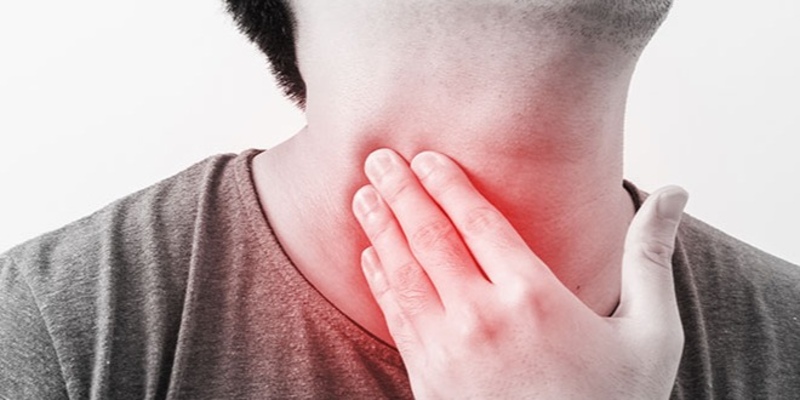Understanding Low Blood Pressure: What You Need to Know
Nov 26, 2023 By Madison Evans
If a person's blood pressure is less than 90 over 60, a medical condition known as hypotension has set in. High or low blood pressure is indicated by two digits. The first examination evaluates arterial blood pressure during a cardiac contraction (systolic blood pressure). The other site is far less stressful in comparison to this one. The arterial pressure that exists while the heart is at rest between beats is known as diastolic pressure. This is the result of the second scale.
People think systolic and diastolic blood pressure less than 120 over 80 are suitable. Most of the time, people with low blood pressure who don't have any symptoms don't need to go to the doctor. Even so, hypotension may be a sign of a more severe problem, especially in people over 65, because it can lower the amount of blood that goes to the brain and the heart. Those that smoke will find this to be especially true.

Symptoms of low blood pressure?Most of the time, the brain doesn't get enough blood flow, which leads to the clear signs and symptoms of having low blood pressure. Here are the ones that are left:
- A feeling of dizziness or fainting.
- Going out of consciousness or having a seizure (syncope).
- The medicine may make you feel sick and make you throw up.
- Vision problems are caused by fogging up or other things that get in the way.
- Not getting enough oxygen, along with quick breathing.
- A state of being tired or not having enough strength.
- I feel tired, drained, and bored.
- A feeling of being lost or unable to keep up with what's happening.
- Agitation and other strange changes in how they act (a person not acting like themselves).
Types of low blood pressureHere are some situations that can cause low blood pressure:Hypotension caused by sitting or standing for a long time (often called "orthostatic hypotension"):When a person gets up from sitting or lies down again after being in a reclining position, their blood pressure can drop. This condition can be caused by being dehydrated, staying in bed for a long time, being pregnant, having specific health problems, or taking certain medicines. This kind of low blood pressure is more likely to happen to older people than to younger people.blood pressure going down after a meal (hypotension after a meal; postprandial)An expected drop in blood pressure happens between one and two hours after eating. People in their later years and those with autonomic nervous system disorders like Parkinson's disease and Hypotension are at a higher risk. You might feel better if you don't drink alcohol, eat meals low in carbohydrates, drink more water, eat smaller meals, and cut down on how many times you eat daily.When neurotransmitters are to blame for low blood pressure:Low blood pressure is a condition that can happen when you stand for long periods. The vast majority of people who are diagnosed with this kind of low blood pressure are young. It's possible that the heart and brain haven't been able to talk to each other well.The nervous system is affected by this strange illness, which is also called the Shy-Drager syndrome. The nervous system controls the body's automatic functions, like blood pressure, heart rate, breathing, and digestion. Even when the person is lying down, their blood pressure is very high because of this illness.What effects can low blood pressure have on my body?
Most of the time, your body will be able to keep your blood pressure steady and keep it from dropping to a level that could be dangerously low. If it drops, your body will try to make up for it by making your heart beat faster or tightening your blood vessels, which makes it harder for blood to flow through your body. This is called hypotension, when the body can't bring blood pressure back to an average level.Hypotension, often called "low blood pressure," is a condition that often doesn't show up in any way when it's present. Do you need to have your blood pressure checked? Many people don't know they have a problem until they see what happens because of what they did.What happens to people with symptoms depends on what caused the low blood pressure in the first place, how quickly it got worse, and what made it start. As people age, their blood pressure starts to drop, making them more likely to get low blood pressure (low blood pressure). If your blood pressure suddenly drops, it could be because blood isn't getting to some parts of your body. This could be risky. There's a chance that the effects could be annoying, upsetting, or even harmful to you.

What causes low blood pressure?A lot of different things can cause low blood pressure. Low blood pressure is often caused by one or more of the following:A dangerously small amount of blood:Blood loss, which can cause a drop in blood pressure if it is bad enough, can be caused by bad enough injuries. Dehydration can make your blood volume go down, among other nasty things.Hazardous situations:Some examples of these conditions are a pulmonary embolism, a heart attack, a pulse that jumps around, and collapsing lungs. Hypotension can also happen when the immune system reacts to a severe illness or an allergic reaction that could be fatal, like anaphylaxis or sepsis. Immunological responses are to blame for both of these conditions.Problems that affect both the heart and lungs:Hypotension can happen if the heart beats too fast or slow or the lungs aren't doing their job right. It can also happen when the lungs don't get enough blood. One of these causes is advanced heart failure, a condition in which the heart muscle is weak.Some medicines can only be bought with a prescription from a doctor:Hypotension is a possible side effect of some medicines used to treat various medical conditions, such as high blood pressure, heart failure, erectile dysfunction, neurological disorders, and depression. Before you stop taking a medicine your doctor prescribed, you must talk to your doctor.Alcohol is an example of a drug that is used for fun:Alcohol and recreational drugs can temporarily lower blood pressure, but heavy drinking over a long period makes it much more likely that you will develop high blood pressure. Herbal supplements, vitamins, and even natural treatments may help lower blood pressure, even though they are not technically medicines. So, it would be best to always talk to your doctor about them when you talk about the medicines you are taking.Pregnancy:A woman could have orthostatic hypotension in her pregnancy's first or second trimester. Your blood pressure could go down if you have bleeding or other problems with your pregnancy.Situations that have a lot of heat:Extreme heat or cold can make hypotension worse.Conclusion:If the top number (systolic) of a person's blood pressure test is less than 90 mm Hg or the bottom number (diastolic) is less than 60 mm Hg, this is often a sign of low blood pressure (diastolic). It is not impossible for someone with low blood pressure to have normal blood pressure. Low blood pressure can cause no symptoms, Yet, it may also cause dizziness or fainting. In some circumstances, external blood pressure has been associated with an increased mortality risk.Low blood pressure can be caused by many things, from dehydration to more serious health problems. Before developing a plan to treat low blood pressure, it is imperative to determine why the condition is happening.







